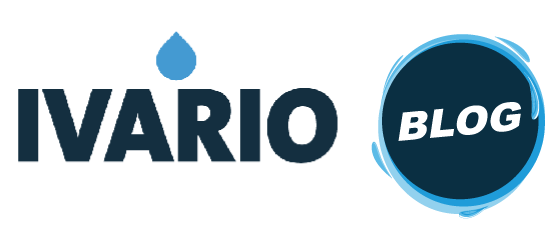For many of us, boiling water is an unbeatable way to turn potentially contaminated tap water into completely safe drinking water. But is this really the case?
Does boiling water help against contamination? Yes and no!
A few years ago, the answer would have been “in all probability yes”. But over the course of time, not least due to industrialisation, the pollution triggers are changing. While germs used to be the main problem, pollutants such as nitrates in the water are now causing problems for the quality of our drinking water.
Fungi, viruses or bacteria are actually killed during the boiling process. But not heavy metals and other substances.
Boiling water for babies? Is that enough? This is a question mothers ask themselves time and again. There is usually no really satisfactory answer – opinions are divided here. We explain briefly and to the point why the questions of whether boiling water for babies makes sense and whether there really is absolute safety provoke such different views.
Should tap water for babies be boiled?
Tap water for babies must meet the highest standards. The immune system and the organism of the little ones, which are still in one of the most important phases of development, are particularly sensitive in the first months and years of life. For this reason, tap water must not pose a danger to babies and toddlers in any way, if possible, when it is used to prepare food, for drinking or for hygiene.
As a rule, tap water from waterworks is completely free of dangerous contaminants. Nevertheless, we are not on the safe side here. On its way through the tap water system of the home, it is not uncommon for impurities to appear that hardly anyone takes into account. These can already pose a danger to adults – for babies and small children, on the other hand, they can under certain circumstances be classified as extremely explosive.
In addition to lead and other heavy metals that can enter the water through the pipes, bacterial contamination, such as legionella or coliform bacteria, cannot be ruled out. Boiling water for babies provides only limited protection against this danger. The reason:
Heavy metals are not destroyed by boiling! They are still in the water after boiling and can cause serious and long-term health and physical problems.
Bacteria in drinking water, on the other hand, can be destroyed by boiling. But beware: Legionella, for example, is not mainly a danger when the water is drunk or used for food preparation! These bacteria become a danger during the baby’s bath, for example, because they enter the body through the respiratory tract. However, since bath water for babies is hardly ever prepared in boiling temperatures, Legionella bacteria, for example, are thus not killed.
Ergo: Boiling tap water for babies only helps to a limited extent. It gives security before some kinds of the bacterial load, however by far not regarding all sources of danger, which can lurk in the tap water.
So how can you protect your baby? A water test provides security and should be carried out regularly, especially if babies live in the household. This can be done in just a few simple steps and quickly provides information about the safety of the tap water.
Heavy metals remain a problem despite boiling water
Heavy metals and salts, on the other hand, remain even after water has been boiled. Strict guidelines and limits apply in Germany when it comes to substances such as lead, aluminium or zinc in water. Nevertheless, these can get into the water in the domestic drinking water installation – mostly unnoticed. These cannot be eliminated by boiling water.
Getting rid of bacteria and germs by boiling water
So in summary, boiling water only provides partial safety. Bacteria, such as Legionella in drinking water, die almost without exception at such high water temperatures. However, boiling water does not help against heavy metals in drinking water.
Filtering water and, above all, finding causes
Special water filters are needed to filter heavy metals from water, which, just like viruses and bacteria, can have enormous effects on health. However, commercially available water filters do not always perform their service to absolute satisfaction, as recent tests have shown. In principle, therefore, it makes sense to invest less energy in cleaning water that is already contaminated, and instead to focus on clarifying the cause of contamination and eliminating it from the world.
Water tests are not a luxury, but sometimes simply necessary
Testing your own drinking water can help to find problems in your drinking water installation. Only those who test their water find out if there is a problem and can then solve it specifically.
Boiling the water can destroy dangerous bacteria – but the user can still not be completely safe, because contamination by lead and similar heavy metals can not be solved in this way.


